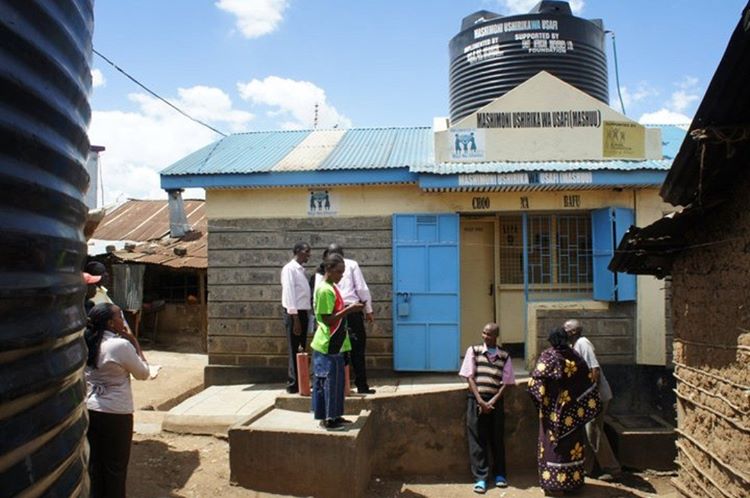Urban water management is an ever-evolving field that has become increasingly crucial as cities face growing challenges related to water scarcity, pollution, and climate change. As populations in urban areas continue to rise, so does the demand for reliable and sustainable water systems. This has led to the development of innovative technologies that not only ensure the efficient use of water resources but also contribute to the sustainability and resilience of urban environments.
In this article, we will explore how innovative technologies are revolutionizing urban water management. We’ll delve into the latest advancements that are helping cities better manage their water resources, reduce waste, and address the pressing challenges posed by urbanization and climate change. From smart water systems to advanced treatment methods, these technologies are paving the way for a more sustainable future.
Also read:From Crisis to Opportunity: Maji na Ufanisi’s Impactful Journey in Water and Sanitation
A Detailed Explanation of Urban Water Management Technologies
Urban water management encompasses a range of activities aimed at ensuring the availability and quality of water for city dwellers while protecting the environment. Traditional methods of water management often struggle to keep up with the increasing pressures of urbanization, leading to inefficiencies and vulnerabilities. However, new technologies are stepping in to bridge the gap, providing solutions that are both innovative and sustainable.
Smart Water Systems: The Future of Urban Water Management

One of the most promising advancements in urban water management is the development of smart water systems. These systems leverage the power of digital technology, sensors, and data analytics to monitor and manage water resources in real-time. By providing accurate and timely information on water usage, leaks, and demand patterns, smart water systems help cities optimize their water distribution networks and reduce waste.
For example, smart meters installed in homes and businesses can track water usage in real-time, allowing for more precise billing and early detection of leaks. This not only saves water but also reduces the financial burden on both consumers and utility providers. Additionally, smart water systems can be integrated with weather forecasts and climate models to better manage water resources during periods of drought or heavy rainfall.
Advanced Water Treatment Technologies
As cities grow, so does the volume of wastewater that needs to be treated and safely discharged. Traditional water treatment plants often struggle with capacity issues and may not be equipped to remove all contaminants effectively. This is where advanced water treatment technologies come into play.
Membrane filtration, for instance, is an innovative technology that uses semi-permeable membranes to remove particles, bacteria, and viruses from water. This method is highly effective and can be used in conjunction with other treatment processes to produce high-quality drinking water. Similarly, ultraviolet (UV) disinfection and advanced oxidation processes (AOPs) are being employed to eliminate harmful pathogens and chemical pollutants that traditional methods might miss.
These advanced treatment technologies not only improve the quality of water but also reduce the environmental impact of wastewater discharge, helping cities meet stringent environmental regulations.
IoT in Water Management
The Internet of Things (IoT) has brought about a paradigm shift in how cities manage their water resources. IoT-enabled devices, such as sensors and automated controls, are being deployed across water networks to monitor conditions in real-time and adjust operations accordingly.
For example, IoT sensors placed in water pipelines can detect pressure changes that may indicate leaks or bursts, allowing for immediate repairs. Similarly, IoT devices can monitor water quality at various points in the distribution network, ensuring that any contamination is quickly identified and addressed.
By providing real-time data and enabling remote management, IoT technologies help cities enhance the efficiency and reliability of their water systems, ultimately contributing to greater urban resilience.
Water Conservation Technologies
Water conservation is a key component of sustainable urban water management. As cities face increasing water scarcity, it becomes essential to implement technologies that reduce water consumption and promote efficient use.
One such technology is the use of greywater recycling systems, which allow for the reuse of water from sinks, showers, and washing machines for non-potable purposes such as irrigation and toilet flushing. This reduces the demand for fresh water and helps conserve this precious resource.
Another innovative approach is the use of permeable pavements in urban areas. These pavements allow rainwater to seep into the ground rather than running off into storm drains, reducing the risk of flooding and replenishing groundwater supplies.
Climate-Resilient Water Systems
Climate change is having a profound impact on water resources, with cities experiencing more frequent and severe weather events such as droughts and floods. To address these challenges, cities are turning to climate-resilient water systems that are designed to withstand and adapt to changing environmental conditions.
One example is the implementation of green infrastructure, such as green roofs and rain gardens, which can absorb and manage stormwater, reducing the risk of flooding. Additionally, climate-resilient water systems often incorporate flexible and redundant infrastructure, allowing cities to quickly adapt to unforeseen events and maintain water supply even in the face of disruptions.

Here’s everything else you need to know about the future of urban water management and the role that innovative technologies play in shaping sustainable and resilient cities.
How Maji na Ufanisi is Leading the Way in Urban Water Management
Maji na Ufanisi (Water and Development) is at the forefront of leveraging innovative technologies to address the pressing challenges of urban water management. With a focus on sustainable and resilient water systems, Maji na Ufanisi is implementing projects that not only improve water access in urban areas but also ensure the long-term sustainability of these resources.
1. Integration of Smart Water Systems: Maji na Ufanisi is working on deploying smart water meters and IoT sensors in various urban areas to monitor water usage and detect leaks in real-time. This technology allows for better water management and helps reduce wastage, ensuring that every drop counts.
2. Advanced Water Treatment Initiatives: In partnership with local governments, Maji na Ufanisi is introducing advanced water treatment technologies that ensure clean and safe drinking water for urban populations. These initiatives include the use of membrane filtration and UV disinfection to remove contaminants and protect public health.
3. Promotion of Water Conservation Technologies: Understanding the importance of water conservation, Maji na Ufanisi advocates for the adoption of greywater recycling systems and permeable pavements in urban planning. These technologies help reduce the overall demand for fresh water and mitigate the impacts of urbanization on natural water bodies.
4. Climate-Resilient Projects: Maji na Ufanisi is also focused on building climate-resilient water systems that can withstand the effects of climate change. Through the implementation of green infrastructure and adaptive water management strategies, the organization is helping cities become more resilient to extreme weather events and secure their water futures.
A New Era in Urban Water Management
As cities around the world grapple with the challenges of rapid urbanization and climate change, innovative technologies in urban water management are providing solutions that are not only effective but also sustainable. From smart water systems and advanced treatment methods to IoT-enabled monitoring and climate-resilient infrastructure, these technologies are transforming the way we manage water in urban environments.
In the future, the continued adoption and integration of these technologies will be essential in creating cities that are not only livable but also sustainable. Organizations like Maji na Ufanisi are leading the charge, demonstrating that with the right approach, we can secure our urban water resources for generations to come.
FAQs
- What is urban water management? Urban water management involves the planning, development, and maintenance of water resources in cities to ensure a reliable supply of clean water and the proper treatment of wastewater.
- Why is smart water technology important? Smart water technology helps optimize water usage, detect leaks early, and improve the overall efficiency of water distribution networks, reducing waste and costs.
- How do advanced water treatment technologies work? Advanced water treatment technologies use processes like membrane filtration, UV disinfection, and advanced oxidation to remove contaminants from water, ensuring it is safe for consumption.
- What role does IoT play in water management? IoT devices monitor real-time data on water quality, pressure, and flow, allowing for more efficient and responsive management of water systems.
- What are the benefits of water conservation technologies? Water conservation technologies reduce the demand for fresh water, help manage stormwater, and promote sustainable water use in urban areas.
- How can cities become more climate-resilient in their water management? Cities can implement green infrastructure, flexible water systems, and adaptive management strategies to better cope with the effects of climate change.
- What is greywater recycling? Greywater recycling involves reusing water from sinks, showers, and washing machines for non-potable purposes, reducing the demand for fresh water.
- Why is permeable pavement important in urban areas? Permeable pavement allows rainwater to infiltrate the ground, reducing runoff, mitigating flood risks, and replenishing groundwater supplies.
- What is Maji na Ufanisi’s role in urban water management? Maji na Ufanisi is leading projects that integrate innovative technologies into urban water management, focusing on sustainability and resilience.
- What are the challenges of urban water management? Challenges include water scarcity, pollution, aging infrastructure, and the impacts of climate change, all of which require innovative solutions.



